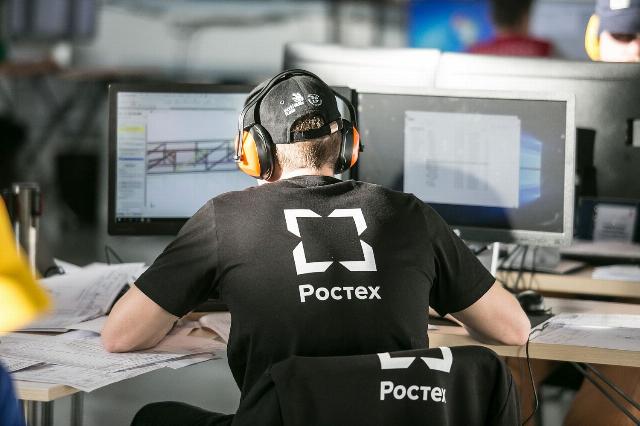About how Rostec solves the tasks of digitalization of industry and recruitment in this area
The industry is experiencing a digital boom today. Digitalization is necessary for real sector enterprises like air in order to develop and remain competitive. New technologies such as the Internet of things, machine vision, artificial intelligence, etc. also open up great prospects for the industry.
At the same time, the process of digitalization of the real sector in Russia is uneven and has recently become more complicated due to the withdrawal of major foreign players from the software market. Another of the key problems of the industry is the lack of IT personnel, especially with relevant experience.
How Rostec State Corporation copes with these challenges is in our material.
Innovations for automation
Modern industry consists of many complex systems, and specialized software is used at almost every stage of product creation. Information technologies permeate the real sector: from automation of technological processes in a small enterprise to unified information environments of huge holdings and corporations.
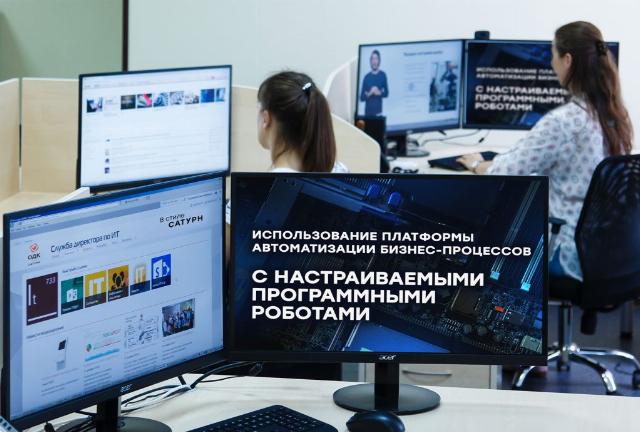 |
| IT is for the real sector. |
| Source: United Engine Corporation |
Globally, the products of the industrial IT sector can be divided into two categories: managing production chains and ensuring quality and safety control. The second category can also include those solutions that allow you to automate business processes, improving the overall efficiency of the enterprise. The real sector also has its own specifics — heavy-class software for specific production tasks in aircraft construction, engine building, machine tool construction, etc.
IT in Russian
According to statistics announced by Russian Prime Minister Mikhail Mishustin, as of July 2022, 77% of the software at Russian industrial enterprises was of foreign origin. The most urgent task of the day is to find a replacement for imported solutions. In particular, for Rostec State Corporation, this means transferring more than eight hundred enterprises across the country to domestic software in the shortest possible time and without loss of productivity.
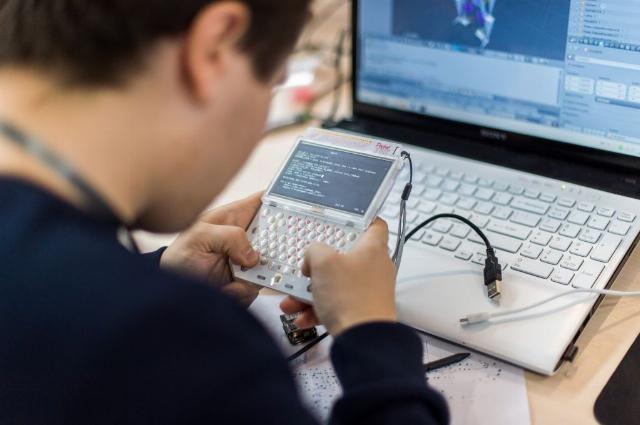 |
| IT is for the real sector. |
| Source: Rostec |
In matters of import substitution in the IT sector, Rostec is one of the flagships of the domestic industry. As Sergey Chemezov, CEO of the Corporation, noted in 2022, "having our own industrial software is one of the main conditions for achieving technological sovereignty. Russian planes, helicopters, engines, and other types of equipment should be designed and manufactured using domestic IT solutions - this is a matter of national security."
Since then, there have been significant developments, a number of foreign products have been replaced by Russian analogues. For example, Rostec enterprises are switching to products based on the IIoT industrial Internet of Things.Istok is self-developed. Solutions are also being implemented in ERP-class systems (resource management systems), including an automated system for financial and procurement activities. Work is underway to create highly demanded domestic PLM and CAD systems for design. All modern aircraft — MS-21, SJ-100, IL-114-300 — They are already being created in a digital environment using Russian software. Cybersecurity is one of the priorities: Rostec's own development, the RT Protect EDR system, is used to detect cyber attacks at the Corporation's enterprises.
Real challenges for the real sector
The profession of an industrial IT specialist is now one of the most in-demand in the labor market. An IT technician in the industry is not just a person who knows programming languages or is able to train a neural network model, that is, owns IT tools. This is a specialist who understands the intricacies of working in the industry, who is able to transfer his knowledge to the goals of the enterprise and ensure high-quality automation of production processes. Therefore, it is often easier for large enterprises or holdings to train employees for themselves than to train people from the outside.
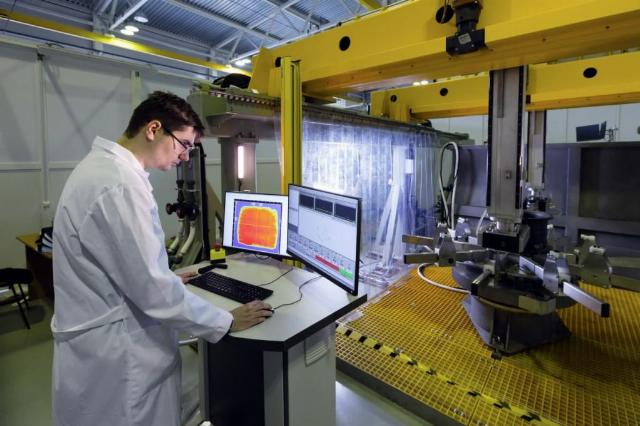 |
| IT is for the real sector. |
| Source: United Engine Corporation |
IT specialists of Rostec State Corporation enterprises often have to solve non-trivial, unique tasks. For example, one of the most difficult industries is the creation of blades for gas turbine engines, and a large amount of resources and time is spent on their testing stage. At the Salyut production complex of the United Engine Corporation (UEC), IT specialists have created and implemented such a program, which for the first time in the industry allows mathematical methods to simulate some important processes. Thus, using purely software tools, it was possible not only to reduce the volume of field tests, but also to increase the reliability of the aircraft engine.
Virtual twin technology is also used to reduce the design stage of aircraft engines. These digital copies can also be used in training. So, gas industry specialists will soon be trained to work with the latest industrial engine AL-41ST-25, developed at Rostec, using virtual reality. The educational product itself is being created in partnership, but the digital version of the engine was created by engineers of the UEC and a branch of the Ufa enterprise UEC-UMPO — OKB named after. Cradles.
On the start, attention, the code!
An IT specialist in industry must have in-depth knowledge of a specialized set of technologies, tools and platforms for the development of equipment necessary for the enterprise. However, this does not mean that developers from other specializations will not be able to retrain. An interested professional or novice programmer can study the specifics of production development by applying for an internship or taking part in specialized competitions. For example, in sports programming competitions.
Sports programming is a globally recognized discipline aimed at working with algorithms in a competitive format. Yandex and other large companies have their own Olympiads. Rostec also did not stand aside — RT-Techpriemka, together with the Russian Sports Programming Federation, recently held an Industry Code competition in the Chelyabinsk Region.
The main difference between sports programming and popular hackathons, where specific products are more often developed, is the solution of algorithmic tasks. At the same time, participants work individually or in small groups (2-3 people), unlike hackathons, where the team size can be up to 15 people.
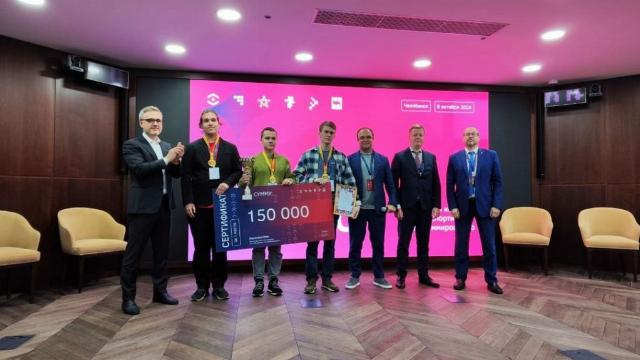 |
| IT is for the real sector. |
| Source: Ministry of Finance of the Chelyabinsk region |
20 teams and more than 80 participants from 17 to 25 years old took part in the competitions under the auspices of Rostec in Chelyabinsk. For two days, they carried out a case study on optimizing the timely delivery of components for the production of complex technological equipment — a robotic manipulator.
With the help of modern digital tools, participants needed to solve the task of creating a website or web application that could help plan the receipt of components at production sites strictly by a certain deadline, offer optimal routes, the number of vehicles and the cost of cargo delivery from eight Russian regions, taking into account the timing of the return of components in case of low-quality or defective delivery products.
The best work was the project of students of South Ural State University. The winners of the competition received cash prizes and gifts, but more importantly, the opportunity to complete an internship and find a job at industrial enterprises in the region, including in the Rostec State Corporation circuit.
Such competitions solve several problems at once. First, as a result, an effective solution to the problem is developed that can be applied in practice. Secondly, the customer can understand which educational institutions train specialists most efficiently. And thirdly, to identify the best of the best and motivate them to cooperate. In conditions of a shortage of IT personnel and great competition, which will only increase, comprehensive work with young people is the most competent solution.
